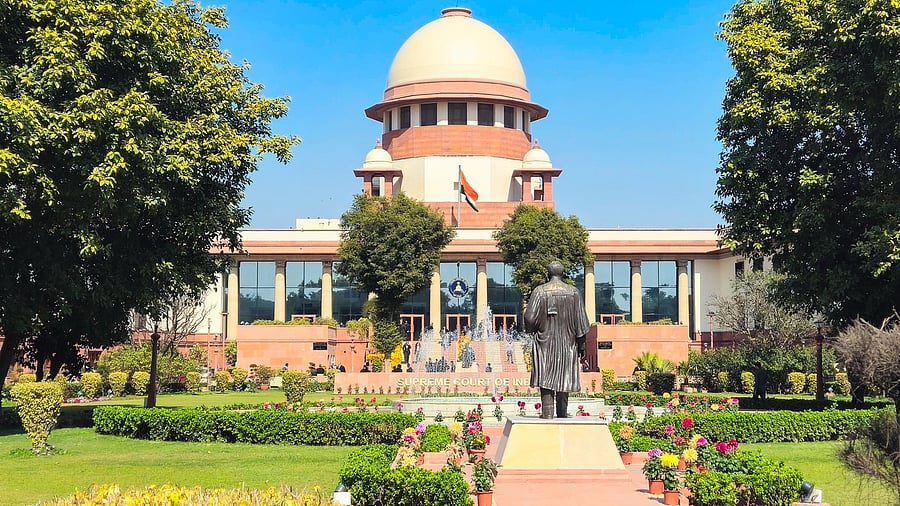
The Supreme Court of India.
Credit: iStock Photo
New Delhi: The Supreme Court on Wednesday declined to grant quota for promotee judges in Higher Judicial Service (HJS), after finding that there is no "common malady" of disproportionate representation which afflicts the country.
A five-judge Constitution bench led by Chief Justice of India B R Gavai said that a "perceived discontentment" and "heartburn" cannot result in creating an artificial classification of members within a cadre.
The bench said fixation in the Selection Grade and Super Time Scale within the HJS is based on the merit-cum-seniority within the cadre and cannot depend upon the length of service or performance in the lower rungs of the judiciary.
The court emphasised a perceived discontentment and heartburn without something more in the form of a legal claim, illegal denial, or at least a legitimate expectation cannot result in creating an artificial classification of members within a cadre.
"The statistical data is disparate and does not provide a substantial basis to find such discontentment and heartburn of RPs (Regular Promotees), in the HJS, to be justified," the bench, also comprising Justices Surya Kant, Vikram Nath, K Vinod Chandran and Joymalya Bagchi, said.
The top court said in-service judicial officers have enough opportunities for advancement as district judges, which allowed them to contest for direct recruitment as district judges.
The court also held the length and performance as a Civil Judge also does not constitute an intelligible differentia to classify incumbents in the common cadre of District Judge and the classification on the basis of educational qualifications stands on a different footing.
Individual career aspirations are a normal incidence of service, accentuated only by better performance, the top court said, adding they are not connected to the objective of an independent and strengthened judiciary and cannot guide the shape of the rules of seniority.
The court issued guidelines for the filling up of the district judge posts and said the seniority of officers within the HJS shall be determined through an annual 4-point roster, filled by all officers appointed in the particular year in the repeating sequence of two Regular Promotees, one Limited Departmental Competitive Examinations (LDCEs), and one Direct Recruits.
